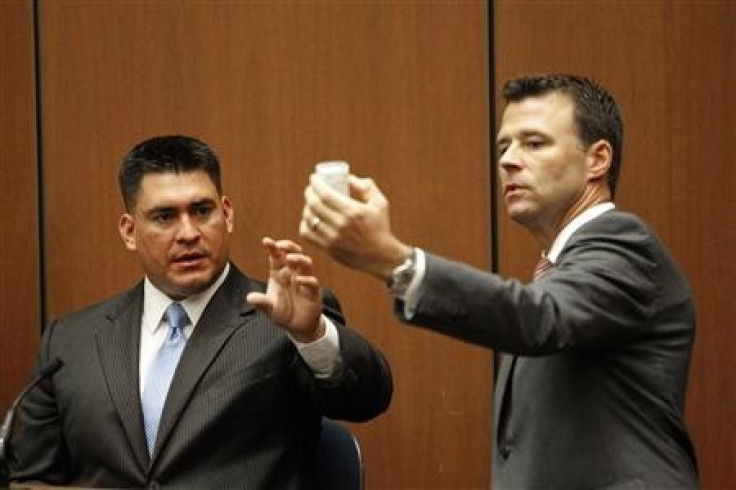Michael Jackson Trial: Meet the Witnesses, Attorneys, and Jury

The involuntary manslaughter trial of Dr. Conrad Murray, who was Michael Jackson's personal physician and is the accused in a case involving the death of the King of Pop, began last week.
At the time of Jackson's death, he was reportedly struggling with debts of between $400 million and $500 million, and it is believed that his life, after his acquisition of the Neverland ranch, became a series of messy management decisions, failed comebacks and, most notoriously, child-molestation claims.
In March 2009, however, Jackson held a press conference at London's O2 arena, where he announced a series of comeback concerts, titled the "This Is It" tour. Unfortunately, less than three weeks before the first show, Jackson died. The official cause of his death was registered as a cardiac arrest.
Witnesses
The witnesses in the case to this point have included famed choreographer Kenny Ortega and security guard Alberto Alvarez.
Ortega was the first witness for the prosecution, and he spoke of how Murray assured him that Jackson was healthy, withholding the fact that every night he was giving the superstar several drugs, including the anesthetic propofol.
Alvarez was the first security guard to reach Michael Jackson's room after he collapsed, and he claimed Murray instructed him to remove intravenous-fluid bags from the room before the paramedics arrived.
Attorneys
The prosecutor in the case is David Walgren, a Los Angeles deputy district attorney who, in his opening argument, told jurors that "misplaced trust in the hands of Conrad Murray cost Michael Jackson his life."
"The evidence in this case will show that Michael Jackson trusted his life to the medical skills of Conrad Murray," Walgren told the jury.
Defense lawyer Ed Chernoff claimed Jackson, who was tired and under pressure to get himself ready for the concerts, took eight anti-anxiety lorazepam pills so he could sleep better.
"When Dr. Murray left the room, Michael Jackson self-administered a dose of propofol that, with the lorazepam, created a perfect storm in his body that killed him instantly. The whole thing is tragic, but the evidence is not that Dr. Murray did it," Chernoff said.
Murray faces a maximum sentence of four years in prison, along with the loss of his medical license, should he be found guilty by the jury.
Jury
The jury consists of six white Americans, five Hispanic Americans, and one African American. Some are high-school graduates; others have college educations. Only one has a master's degree -- in business.
Murray, a cardiologist from Texas, was reportedly paid $150,000 (£96,000) a month to care for Jackson. He was in tears in the courtroom. The evidence presented during the trial has included an audiotape of the drugged singer barely able to speak and a photograph, taken one month later, of his body at the hospital.
On the audiotape, a drugged Jackson is heard saying: "We have to be phenomenal. When people leave this show, when people leave my show, I want them to say, 'I've never seen nothing like this in my life. Go. Go. I've never seen nothing like this. Go. It's amazing. He's the greatest entertainer in the world.'"
Almost all of Jackson's family members were present in the courtroom. La Toya Jackson had been live tweeting from the courtroom, stating that her brother was murdered. She tweeted, "Whenever someone is murdered, U follow the money trail & U C who has the most to gain, those are normally the ones responsible."
She added, "The family has ABSOLUTELY NOTHING 2 do with his estate!"
She also criticized individuals testifying in court.
© Copyright IBTimes 2024. All rights reserved.





